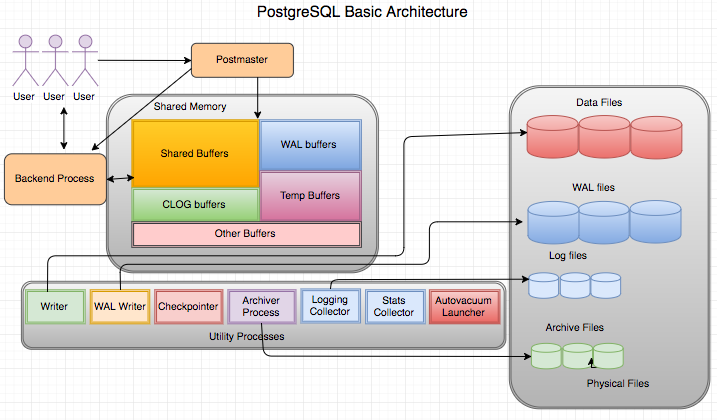

If you want to drill down into each individual’s table and index cache hit ratios, you can use table_cache_hit and index_cache_hit methods. cache_hit name | ratio -+- index hit rate | 0.999577 table hit rate | 0.988721 You can check index and table cache hit ratios using the following code: RubyPgExtras. A reliable indicator that a database should be scaled up is an invalid cache hit ratio. PostgreSQL tracks access patterns of your data and keeps frequently read chunks in a memory cache. Before you start throwing money at your performance issues, it’s good to check if it will actually help. In theory, the simplest solution to optimize the underperforming database is to scale it up vertically. This is the eBook that I wish existed when I was first tasked with moving the Heroku database to AWS as a developer with limited dev ops experience.ġ) Validate your database specs with cache hit ratios It will not impact your production workload. Under the hood, PG Extras performs a lightweight queries on PostgreSQL metadata tables. Make certain to run all the checks on a warmed up production database. Now that you’ve set up the library in the language of your choice let’s start checking our database’s health. If the extension is available but not enabled you have to run this SQL command in your database: CREATE EXTENSION IF NOT EXISTS pg_stat_statements If pg_stat_statements is not listed you should check out these docs for info on installing it. | pg_stat_statements | 1.7 | 1.7 | track execution statistics of all SQL statements executed. To check if the extension is already enabled you can use PG Extras itself: RubyPgExtras. If you are using a default Heroku PostgreSQL plugin or AWS RDS, you should be good to go without making any changes. Some of the PG Extras methods depend on the pg_stat_statements extension. In this blog post, I’ll be using examples from the Ruby version. query ( 'cache_hit' ) # Python extrasCacheHit databaseUrl - Haskell Let’s compare the invocation of the cache_hit method: RubyPgExtras. API is almost identical for all the versions. Please refer to READMEs of respective implementations for installation details. In this blog post, I present a step by step guide on using PG Extras library to spot and resolve common PostgreSQL database performance issues. Ruby, Rails, Elixir, NodeJS, Python and Haskell implementations are currently available. PG Extras is a tool that allows you to spot common PostgreSQL pitfalls.

Before you resort to more complex optimization techniques like caching or read replicas, you should double-check if your database engine does not need tuning and queries are not underperforming. PostgreSQL database queries are a common performance bottleneck for web apps. A leading-edge performance and error monitoring tool for Ruby applications. When the application flow does not allow for it, you can still explicitly claim pessimistic locks with a SELECT. Practice advice: in order to avoid deadlocks, just ensure that all of your concurrent transactions lock rows in the same order.
POSTGRES DEADLOCK UPDATE
My thinking is that the original update statement locks all the rows in the table, but my new update statement will lock fewer rows.ĭoes that make sense? Or does the update statement lock the entire table anyway?īy design, any proper RDBMS does not skip rows that would not change (as that would, for example, evade trigger execution), so updating only the rows that need it is always a good idea to avoid nedless I/O (btw, in PG boolean evaluation is native to the parser, you can simply omit the comparison like you would in C or most other bracketed languages: UPDATE big_table SET bool_col = false WHERE bool_col Īlthough the change may mitigate your deadlock problem, keep in mind that what's likely to be happening is that another transaction is locking the same rows as this one, just in a different order, thus creating a lock stalemate (which the postmaster detects and terminates as in your example).įind out what other process is locking any rows that match that update. To: update big_table set bool_col = false where bool_col != false In the f_big_function() function, I am thinking of changing: update big_table set bool_col = false In the f_big_function() function, I have this SQL statement: update big_table set bool_col = false Īlmost all of the values for the bool_col column in big_table are already set to false before the update statement. (47979,12) in relation "big_table" SQL statement "update big_table set bool_col = false" PL/pgSQL function f_big_function() line 691 at SQL statement Process 74331 waits for ShareLock on transaction 140785551 blocked by process 120481. I am getting this deadlock: : ERROR: deadlock detected Detail: Process 120481 waits for ShareLock on transaction 140788861 blocked by process 74331.


 0 kommentar(er)
0 kommentar(er)
